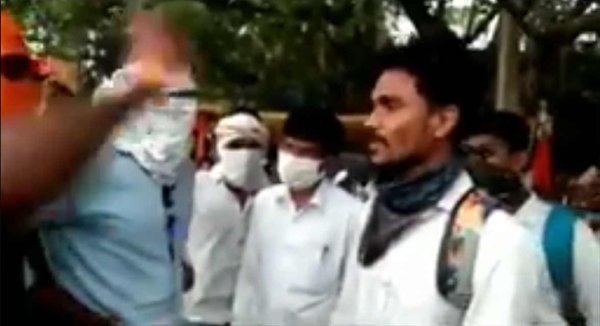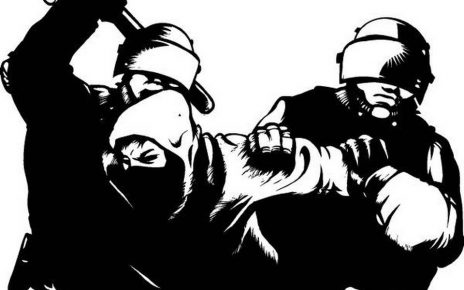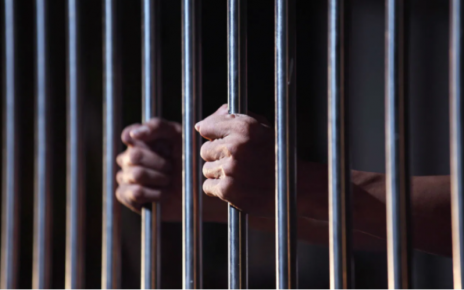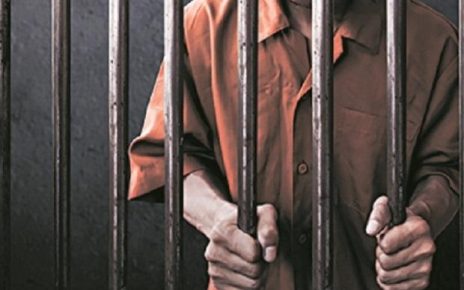Milli Gazette
04 July 2020
Rights have gone all wrong in today’s India! It is a season of discontent for millions everywhere: the pandemic COVID-19 has disrupted life and livelihoods, the routine and the ‘normal’. People have been forced to adjust and to adapt; to become more frugal, more simple and much more. It is also been a time of immense grief, pain and suering particularly for the poor and the marginalised; the migrant worker and the daily wager; the unemployed and the dierently abled. To add insult to injury, India’s insensitive ruling regime instead of responding to the genuine cries of the people has gone all out the way to decimate human rights, destroy the democratic ethos of society and to throttle every form of dissent and protest.
At this moment, high among the human rights violations in the country are brutal beating in police custody and the subsequent deaths of the father and son duo, P Jayaraj (59) and his son J Bennicks (31). They were arrested on 19 June for ‘allegedly’ keeping their mobile phone shop in the main market of Sathankulam town (Tuticorin Dt., Tamilnadu) open during a curfew imposed during the pandemic lockdown (CCTV footage however, belie this). They were lodged in the Kovilpatti sub-jail. Both Jayaraj and Bennicks were terribly tortured in police custody after which they were admitted to the Kovilpatti government hospital on 22 June; the son died that very night, the father breathed his last on the morning of 23 June.
The police of course, have their own ‘doctored’ version of things, with very little credibility. There are practically no takers to what they are saying. One of the friends of Bennicks has gone on record saying, “Three of us were there when police came and took Jeyaraj in the vehicle. We went to the police station with a few others. We heard cries of both Jeyaraj and Beniks for hours as police tortured them through the night. We will produce the video before the court to expose police lies” .The ‘ray’ in this extremely inhuman incident is that there is a national outrage condemning what has taken place and asking for the perpetrators to be brought to book; besides, well-known NGO’s like ‘People’s Watch’ have left no stone unturned to highlight these gruesome murders. Statements of condemnation have come in from all sections of society.
Hindutva terrorists attacking Christians for praying. They claim that had there been Ram’s grand temple in Ayodhya, Corona would have ended as soon as they prayed there. These terrorists in masks as in JNU will not be punished. Watch vdo here: https://t.co/JT0BO6guws
— Milli Gazette (@milligazette) July 3, 2020
Finally, the Madurai Bench of the Madras High Court has taken cognizance of the custodial murders of Jayaraj and Bennicks. In an order on 30 June which is bound to have far reaching implications the Court said “In our opinion, the ante-mortem injuries found on the bodies of the deceased, coupled with the averments in the report of the learned judicial magistrate no.1, Kovilpatti, especially the statement of head constable Revathy, would be prima facie enough to alter the case against the Sattankulam policemen, who were actively involved in the investigation of the case to one under Section 302 of the Indian Penal Code (murder).” In expressing its dismay at what is happening, the Court further added, “In fact, they (police) were emboldened enough to even intimidate the judicial ocer to put spokes in the wheel of his enquiry.
By 2 July, ve of the policemen responsible for this custodial torture and deaths have been arrested and the woman constable, the only eye-witness, who had the courage to stand up for the truth, is being provided with her family members, round-the-clock protection.
Whatever , the nal outcome , the father-son duo will never be brought back to life; however, what several are hoping for, is that the nal result with exemplary punishment for those found guilty, will be a litmus test.
That however, is a wild guess and hope. In India, there are several today who can get away with murder – even if there is enough of evidence pointing to the ‘culprits’. Some just take law and order in their own hands and do so with impunity; besides they also know that they are cloaked with immunity since they know that however heinous their crime they will always have the protection of the current political dispensation. One does not have to go far to know who are the ones being ‘protected’ by this unjust system. The fake encounters in Gujarat are a classic example. It is common knowledge that innocent Muslim youth were killed in trumped up charges and with a ‘justication’ which even an average eight-grader cab see through. Over the years, some police ocers directly responsible for these killings, were even sent to jail. They are out today with an added ‘aura’; they are felicitated, given promotions and even their entire salary for the period during which they were incarcerated. The shocking and untimely death of Justice Loya is now on the backburner. Everyone knows who is the master-mind behind the ‘fake encounters’ and where Loya’s needle of suspicion would nally
stop!
Ironically, 26 June, the day on which the Tuticorin case was gaining prominence, was the ‘UN International Day in Support of Victims of Torture’ which marks the moment in 1987 when the UN Convention Against Torture and Other Cruel, Inhuman or Degrading Treatment or Punishment, (UNCAT) one of the key instruments in ghting torture, came into eect. Today, the Convention has been ratied by 162 countries. Despite pressure from human rights defenders and lip-service promises, India is one of about twenty-ve countries who have not ratied this signicant convention. That people who are arrested for allegedly some crimes committed by them are tortured whilst in police custody, is an open secret. The deaths of Jeyaraj and Bennix are not an aberration; these take place at frightening regularity – and in ninety-nine percent of the cases nothing happens to the policemen who indulge in such violence and even murders. According to a rough estimate, there have been at least six thousand deaths in police or judicial custody in India, in the past three years. This is a conservative gure and the actual number could be even higher! The National Human Rights
Commission also recently citing the National Campaign against Torture report (released on 26 June) said that a total of 1,731 people died in custody in India in 2019.
Interestingly on 26 June itself, at a meeting in Geneva, thirteen experts from the United Nations Human Rights Council, in a highly publicized statement, have demanded the immediate release of eleven people, including six students, arrested for participating in protests against the Citizenship Amendment Act(CAA)One of those named in the statement, Jamia Millia Islamia M.Phil. scholar Safoora Zargar who is ve months pregnant, ( she has
since been released on bail on humanitarian grounds after being in prison for more than two months). She had been booked for terrorism for allegedly inciting the Delhi riots in February by taking part in sit-ins and delivering speeches against the CAA. The signatories to the statement are eight UN special rapporteurs and ve members of the UN Working Group on Arbitrary Detention. Besides Zargar, they have demanded the release of students Meeran Haider, Gulsha Fatima, Asif Iqbal, Devangana Kalita and Natasha Narwal, Aam Aadmi Party supporter Khalid Sai, Jamia alumnus Shifa Ur Rehman, Gorakhpur doctor Kafeel Khan, JNU alumnus Sharjeel Imam and Assam peasant leader Akhil Gogoi.
The hard-hitting statement said, “These defenders, many of them students, appear to have been arrested simply because they exercised their right to denounce and protest against the CAA (Citizenship Amendment Act), and their arrest seems clearly designed to send a chilling message to India’s vibrant civil society that criticism of government policies will not be tolerated. Authorities should immediately release all human rights defenders who are currently being held in pre-trial detention without sucient evidence, often simply on the basis of speeches they made criticising the discriminatory nature of the CAA.” The statement added, “Although demonstrations ended in March due to the Covid-19 pandemic, and India’s Supreme Court issued a recent order to decongest jails because of health concerns related to the pandemic, protest leaders continue to be detained. The reported spread of the virus in Indian prisons makes their immediate release all the more urgent.” Finally, “The arrests seem clearly designed to send a chilling message to India’s vibrant civil society that criticism of government policies will not be tolerated.”
It is a shame on the country that a prestigious and highly impartial body like the UN Human Rights Council should lambast the Indian government in such a direct way. It is a scathing statement indeed by any standards, especially to a democracy like India where the rights and freedom to dissent and protest should not only be safeguarded but also protected. It is imperative that the government of India pay heed to this signicant UN statement and
release all the anti-CAA protesters immediately and unconditionally.
Several human rights defenders continue to languish in jail; besides those wrongly arrested in the Bhima – Koregaon cases there are others arrested on ctitious charges in other parts of the country just because they had the audacity to stand up against the brute force of a dictatorial regime. On 29 July in a statement marking two hundred days of the unjust arrest of Akhil Gogoi, Bittu Sonowal, Dhaijya Konwar and Manas Konwar, the National Alliance of People’s Movements (NAPM) demands their immediate release and withdrawal of all illconceived charges foisted against them stating, “NAPM demands the immediate release of all Akhil Gogoi, Bittu Sonowal, Dhaijya Konwar and Manas Konwar and withdrawal of all false charges level against them. We call upon the Full Bench of the Guwahati High Court to immediately intervene in this case of gross delay and abuse of the legal process and free all the activists, unconditionally. We stand in solidarity with the autonomous and democratic organizations and activists in Assam who protest against the communal & extractive agenda of BJP and other exploitative political entities, with a strong belief in constitutional values, peace and human rights. We call upon the Government to put an end to this vicious episode of clamp-down and instead engage in a serious and meaningful dialogue with the people of the state to address some of the long-standing issues in an amicable way, upholding the rights of all sections, in particular the marginalized and disenfranchised communities”.
India has been faring extremely badly on the Human Rights front on every single global ranking! Besides the custodial deaths, the illegal detention of human rights defenders, fundamental rights of the poor, the marginalized and minorities have taken a severe beating! Freedom of speech and expression, the right to freely preach, practice and propagate one’s faith, the right to dissent and protest, the right to a just wage all seem like a reality which belonged to a dierent age. The ruling regime has no qualms of conscience in decimating the legitimate Constitutional rights of the citizens; it is time then, that ‘we the people of India’ stand up as one, visibly and vocally, to protect and promote all that is precious and needed for the future of our existence as one nation. Eleanor Roosevelt, who was instrumental in giving the world the Universal Declaration of Human Rights, once said “where, after all, do universal human rights begin? In small places, close to home — so close and so small that they cannot be seen on any maps of the world. […] Unless these rights have meaning there, they have little meaning anywhere. Without concerted citizen action to uphold them close to home, we shall look in vain for progress in the larger world.” We need to act now, in whatever way we can, to right the many wrongs in our country today!
— Fr Cedric Prakash SJ is a human rights and peace activist/writer. Contact: cedricprakash[at]gmail.com




